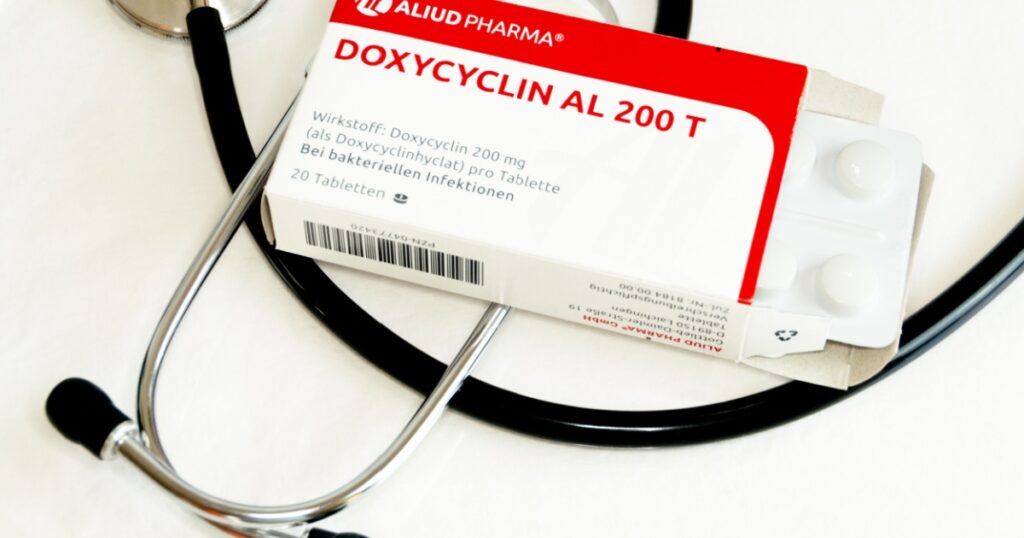We all know even the best of medications come with side-effects, but there’s a large portion of the population that’s even more vulnerable to the health risks of drugs than everyone else. If you’re 65 and over, there are many medications your body does not process like it used to; unfortunately, at times, this can be overlooked by your doctor, and the responsibility for being mindful of these risks lies in your own hands. With most adults middle-aged and overtaking an average of four prescription medications every day (1), things can get complicated. However, there are a few experts in older adult health that have come forward with helpful advice.
Why Older Adults Have A Greater Health Risk From Prescription Medications

So, why does age matter? Over time, your liver, which is the primary organ for metabolizing drugs can become less and less efficient. However, it’s important to note that everyone has their own natural metabolism speed- and it can be difficult for doctors to pinpoint a 100% safe dosage of a prescription drug. Someone with a fast drug metabolism may process their medications so quickly that they aren’t as effective as they are expected to be; someone with a slow drug metabolism may absorb too much of a medication before it’s excreted from the body: even toxic levels (2).
Read More: 6 Types of Medications That Can Potentially Harm Your Kidneys
Kirby Lee, a pharmacist and associate professor of clinical pharmacy at the University of California at San Francisco explains:

“As your body ages, it absorbs medications differently. They can be metabolized differently by your liver and excreted differently by your kidneys, so you may be more sensitive to some medications. Prescribing medications for people 65 and older can be more challenging because some drugs can be more toxic or cause more side effects than when you were younger.”
Kirby Lee, Pharmacist – via NextAvenue.org
To make matters even more complicated

Changes to your diet can impact your drug metabolism in unexpected ways; doctors can’t predict how your body might respond to a particular medication dosage, and unfortunately, specialists in the field are few and far between. According to Patricia Corrigan, a journalist with NextAvenue, “Only about 7,500 physicians in the U.S. specialize in the care of older adults, according to the American Geriatrics Society. With 46 million Americans age 65 and older today, that works out to about one geriatrician per 6,100 patients.”
Which Medications Are More Dangerous for People Over 65?

In 1991, American geriatrician, Mark Beers, M.D. developed his signature list of medication types and the health risks of drugs which posed a unique risk to seniors. This list is now known as the Beers Criteria, and is widely circulated and updated by American geriatricians as newer prescription drugs are created. The criteria is meant to help both older patients and their doctors have increased awareness about which medications may have greater health risks than their intended benefits, thanks to their physiological makeup and their effect on the aging metabolic system. While it isn’t meant to overrule a physician’s recommendations, it’s important to be aware of your body’s unique needs and to ask questions and raise concerns for your medical care provider and pharmacist.
Read More: 13 Medication and Supplement Combinations That Should Avoided
The Beers Criteria: Download Printable List

- Benzodiazepines such as diazepam (Valium), lorazepam (Ativan), alpraxolam (Xanax) and chlordiazepoxide (Librium). Side effects include confusion and risk of falling.
- Non-Benzodiazepines such as Zolpidem (Ambien), zaleplon (Sonata) and eszopiclone (Lunesta). Side effects of chronic use include delirium, increased risk of falling and fracture
- Anticholinergics such as Diphenhydramine (Benadryl), acetaminophen with diphenhydramine (Tylenol PM) and muscle relaxants containing diphenhydramine. Some side effects include confusion, constipation, and dry mouth.
- NSAIDs such as Aspirin, naproxen, and ibuprofen. Side effects include increased risk of kidney damage and stomach damage.
- Blood Pressure medications including alpha-blockers: Doxazosin, Prazosin, Terazosin. Side effects include risk of falling and fatigue.
- Antipsychotics sometimes prescribed for anxiety or depression. Side effects include increased risk of stroke in persons with dementia.
The above is not a complete list. For an up-to-date, downloadable list from the American Geriatrics Society, click here.
Patricia Corrigan’s Story

Patricia Corrigan is a journalist and the author of 19 books. She recently shared her personal encounter with a bad reaction to a prescription medication. Patricia’s story highlights the importance of taking your health into your own hands and learning to be aware of your body’s changing behavior. Here’s how to learn the easy way and not the hard way.
Her Story

“One recent weekend, I experienced a relapse while on doxycycline, an antibiotic prescribed for a bacterial sinus infection. The doctor on call I spoke with prescribed a stronger antibiotic for me, levofloxacin (Levaquin), one I’d taken successfully a decade ago. After four days on the new drug, a throbbing Achilles tendon awakened me in the wee hours. I hobbled to the computer and learned the drug is not recommended for people 65 and older. I am 68. Later that morning, I called my internist, who advised me to stop taking it and start helping the tendon to heal — no easy task, and one with no quick fix. I can’t be angry with the physician who neglected to take my age into consideration, because I share in the blame. When I picked up the prescription, I waved off a consultation with the pharmacist, saying I’d taken this antibiotic before. Then, after reading just a sentence or two of the lengthy list provided to me of possible side effects, I tossed the paper into a recycling bin.“
Patricia Corrigan, Journalist – NextAvenue.org
Read More: 5 Easy Ways to Help Calm Anxiety Without Medications
How to Protect Yourself From The Health Risks of Drugs

You and your loved ones can develop a few small habits that can help to protect your health from harmful effects from your medications.
Be Open With Your Doctor

Try to develop the habit of making yourself comfortable with your medical care provider. Ask questions until you feel comfortable understanding what they’re telling you about your health. You can ask your doctor if they’re comfortable with being recorded so you can refer back to your conversations should you have any follow-up questions. If not, bring a small notebook and pen to your appointments. It’s also imperative not to exclude small details such as medications or multivitamins you’re taking or specific health conditions you have. This will inform your doctor’s recommendations.
Ask Your Pharmacist

Pharmacists are the real experts in your medications. Feel free to ask your pharmacist about the potential side effects of each prescription drug you’re taking, as well as whether there is a risk of interactions between medications. Your pharmacist can also provide recommendations for alternatives.
Read More: Don’t Ever Use Turmeric If You’re On Any of the Following Medications
Take Your Body Seriously

Even if your pharmacist and doctor are vouching for a particular medication, if your body isn’t feeling its best while you’re taking it, listen to it! Pay attention to red flags like upset stomach, dizziness, changes in disposition, pain, or discomfort. Any prescription medication you’re taking should work for you; if it doesn’t, make an appointment with your doctor to find an alternative. (It’s important to call your doctor first with your concerns before removing yourself from any prescription medication.)
Do Your Research

Save a copy of the Beers Criteria on your computer or print it off and keep it in a place you’ll remember to check. Make good use of online resources to find what possible side effects or downsides come with each prescription medication. You should also take into account added risks of long-term conditions such as asthma or diabetes.
Read More: 10 Medications Linked to Dementia
Sources
- “Prescription Drug Use Among Midlife and Older Americans.” Assets. January 2005
- “Drug Metabolism.” Merck Manuals. Jennifer Le, PharmD, MAS, BCPS-ID, FIDSA, FCCP, FCSHP. 2022
- “The Top Drugs for Older Adults to Avoid” NextAvenue. November 22, 2016
Disclaimer: This information is not intended to be a substitute for professional medical advice, diagnosis or treatment and is for information only. Always seek the advice of your physician or another qualified health provider with any questions about your medical condition and/or current medication. Do not disregard professional medical advice or delay seeking advice or treatment because of something you have read here.
This article was originally published on November 3, 2017, and has since been updated.

